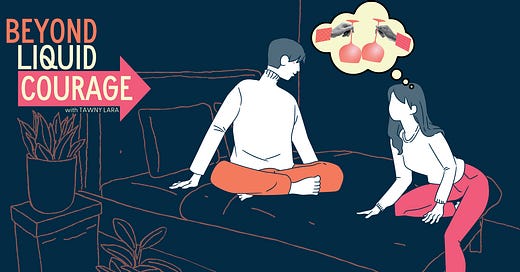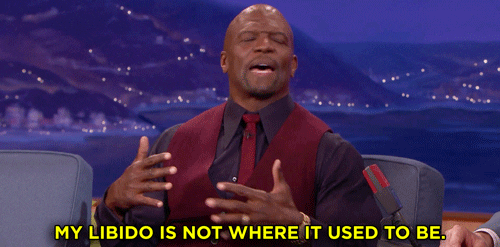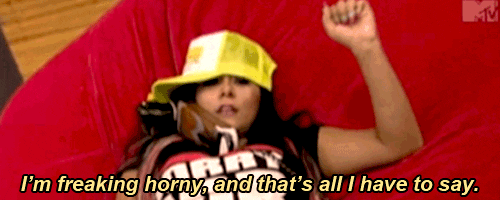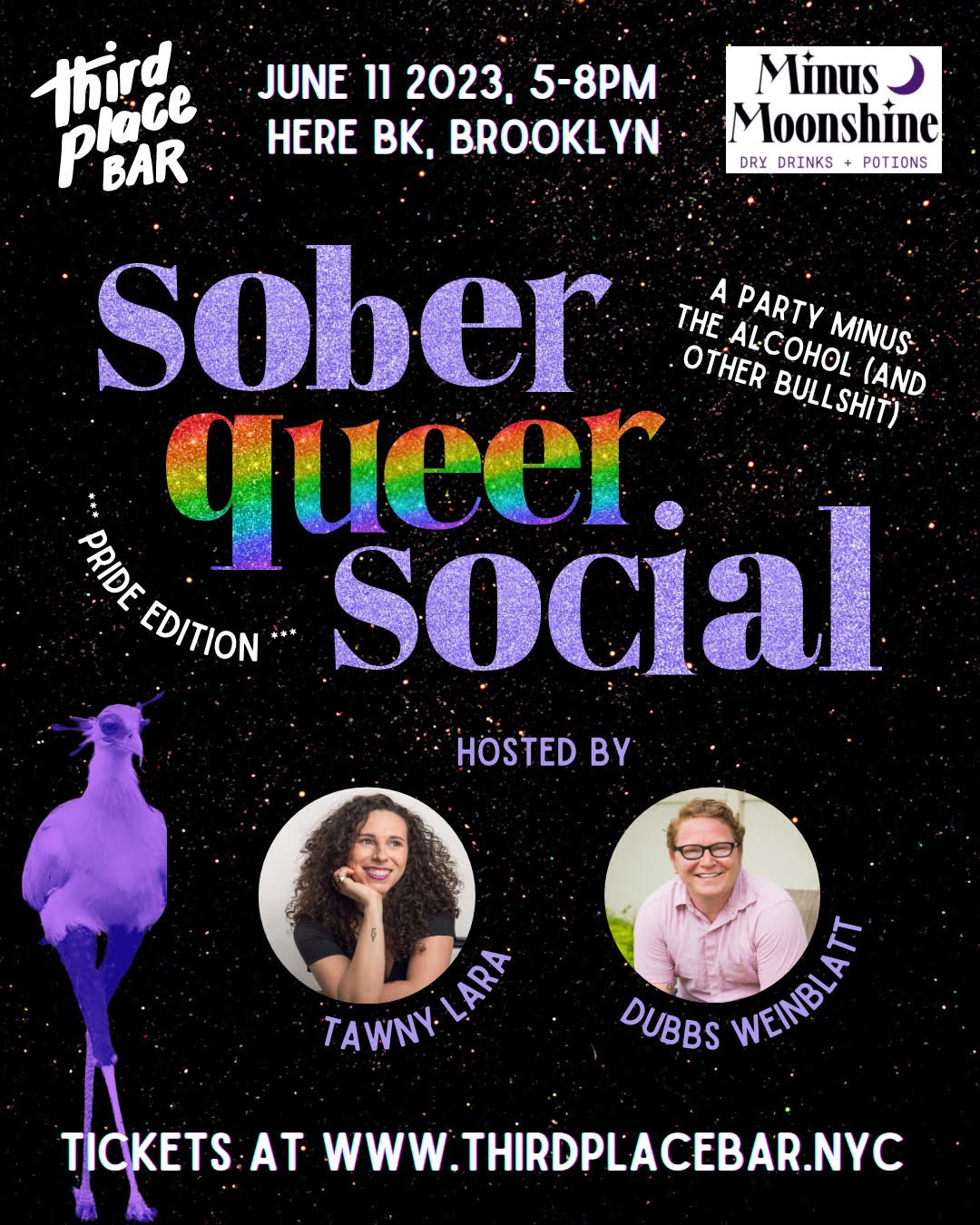Happy Hump Day, y’all! Welcome to the fourth issue of Beyond Liquid Courage. This weekly advice column answers subscriber questions about booze-free dating, relating, and hooking up—whether you’ve given up drinking for good or are just a little curious about the alcohol-free life. I’m Tawny, AKA The Sober Sexpert and author of the forthcoming book Dry Humping: A Guide to Dating, Relating, and Hooking Up Without the Booze, and I’m here to help you move beyond liquid courage.
This week, I answer a question that I received at a recent virtual event: How do I boost my libido in early sobriety? Whether you’re dating, getting serious, or in a committed relationship, this issue’s for you!
Dear Tawny,
I’m six months alcohol-free, and my libido has never been lower. I feel like I’m in the early stages of that movie, How Stella Got Her Groove Back. Any time I think about intimacy or pleasure, I get all in my head, and my anxiety cranks up. My partner is supportive of me during this time, but I can tell they miss my sexuality, too. How do I get my groove back?!
Help!
-Stella Pt. 2
You’re definitely not alone, Stella Pt. 2! It’s common to experience low libido in early sobriety or sober curiosity. But it’s not just giving up the booze that has your libido saying bye-bye. Researchers are even studying our current sexual recession.
Getting sober or taking a break from booze doesn’t happen in a vacuum. Take a look around; it’s a deeply unsexy time right now. A global pandemic, political extremism, an increasing rise in hate crimes and bigotry, and reproductive rights and queer rights are constantly under attack. All of these external events undoubtedly impact our libidos and our mental health. Give yourself a break. And a hug.
Combine the aforementioned current events with the mental distress of getting sober or sober curious in a boozy world; it makes sense that you’re not in the mood right now. Authors Lauren Fogel Mersy, PSYD, and Jennifer A. Vencill, Ph.D., ABPP, write about how sociocultural factors impact our libidos in their forthcoming book, Desire: An Inclusive Guide to Navigating Libido Differences in Relationships. “Drug and alcohol use has a biological effect on the individual [libido] and is also shaped by interpersonal and sociocultural dynamics,” they write. It might take some time for your sexuality to recalibrate after years of relying on booze as the kickstarter.
While Angela Bassett’s Stella traveled all the way to Jamaica to get her groove back, there’s plenty you can do in your own space to feel reinvigorated. So let me answer your question with some things to ponder.
What Does “High Libido” Mean to You?
I ask you to define “high libido” because I want to make sure you’re not using the term “low libido” in a negative way. It’s perfectly acceptable to feel content with having sex once a year, once a week, or not at all. We often think of sexual liberation as having lots of adventurous sex, but liberation really just means liberating yourself from what society thinks you *should* do in bed.
Identifying what your ideal sex life looks like, now that you’re sober, might help with you being “all in your head.” When I overthink something, I often compare myself to how I think I *should* behave or how others behave. Fuck that. Be you!
We often think of sexual liberation as having lots of adventurous sex, but liberation really just means liberating yourself from what society thinks you *should* do in bed.
Are You in Therapy?
Unpacking our past—the past that often led us straight to the bottle—is an incredibly stressful time. Especially folks unpacking sexual trauma. (I have a whole chapter on this exact topic in my book.) If a lot of unpleasant stuff is coming up for you right now, give yourself a pat on the back for surviving some tough shit and finding healthy, booze-free ways to cope with what happened.
Are You on Medication?
Since there’s usually an overlap between unprioritized mental health and substance use disorder, it’s common for newly sober folks to work with their doctors* to take medication for newly diagnosed mental disorders. I tried for years (seriously, over a decade) to self-medicate my repressed trauma and anxiety disorder with alcohol, drugs, sex, and anything else I could get my hands on. I didn’t find a true reprieve until I quit drinking, started therapy, and got on anxiety medication. Many mental health medications can impact sex drive, but lots of other medications can lead to low libido, too.
A Few Additional Questions (remember: there are no wrong answers!):
What was your relationship with sex like when you drank?
How is your body image? Did you use alcohol to feel confident in your body?
Are you experiencing sexual shame that you once numbed with alcohol?
What does sex mean to you? How did you define ‘sex’ in the past? How do you define it today?
How do you and your partner(s) communicate?
When you last “had your groove,” what was life like? Your career? Your relationship status? Your relationship with alcohol? Your family dynamics? Compare those answers to how your life is now; see if there’s any correlation.
What’s your takeaway from today’s column? Comment below! I high key thrive on feedback :)
If this week's newsletter interests you, there’s a full chapter in my book, Dry Humping: A Guide to Dating, Relating and Hooking Up Without The Booze, on this very topic.
Next week’s issue explores how getting sober or sober curious might change your taste in romantic or intimate partners. Subscribe here so you don’t miss it!
This issue was edited by Irina Gonzalez, and the artwork is by Anne Porter.
Until next week,
P.S. I’m co-hosting a sober pride event on June 11th in Brooklyn! Grab your ticket here.
*I am not a medical or mental health professional. Anything written here is my personal opinion and does not qualify as medical advice. Please speak with your doctor if you are concerned about substance use disorder or have other mental health issues.








